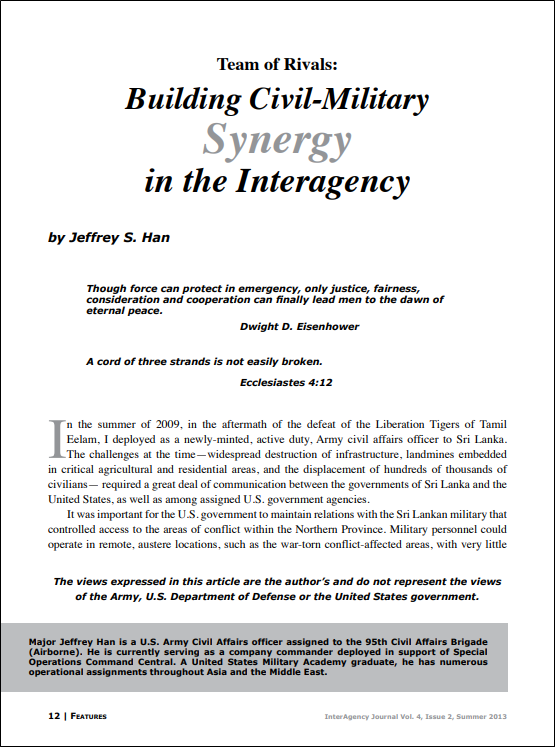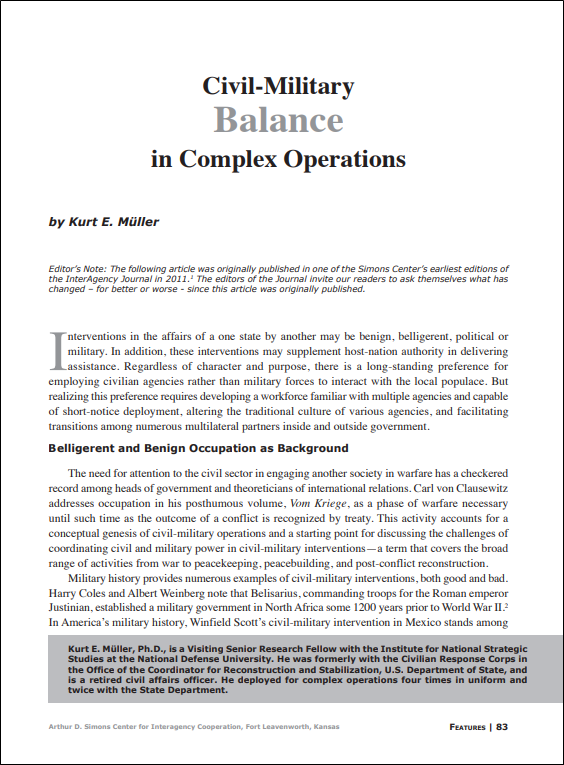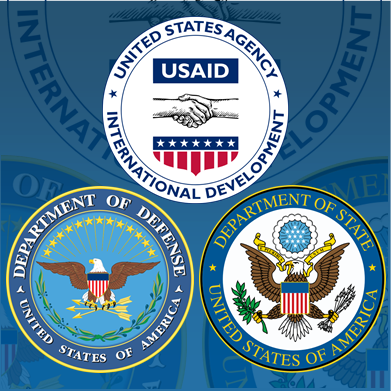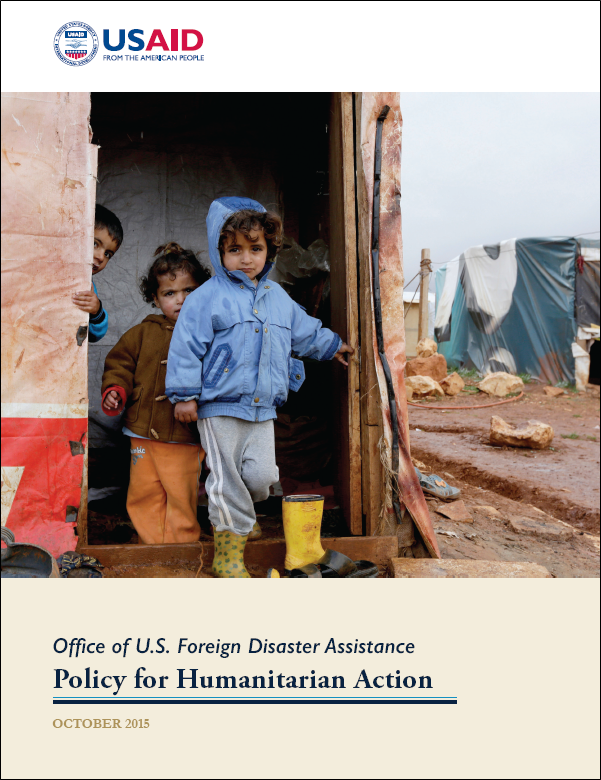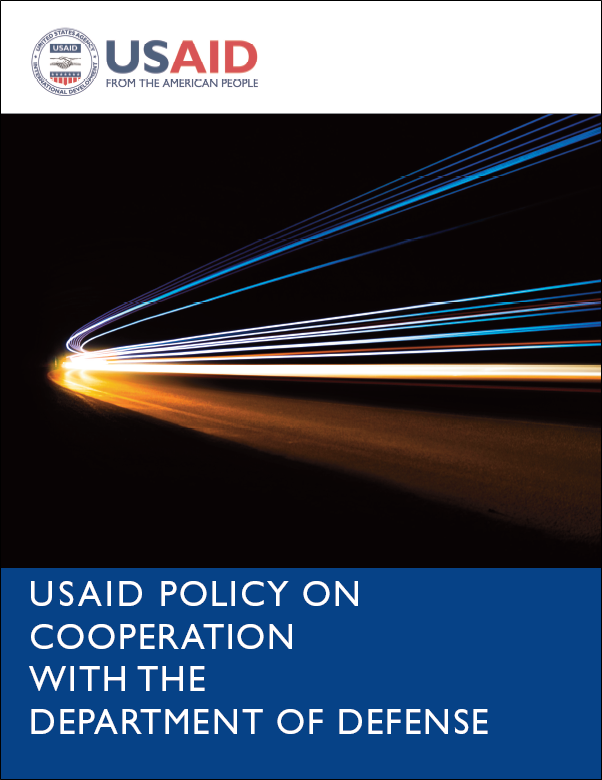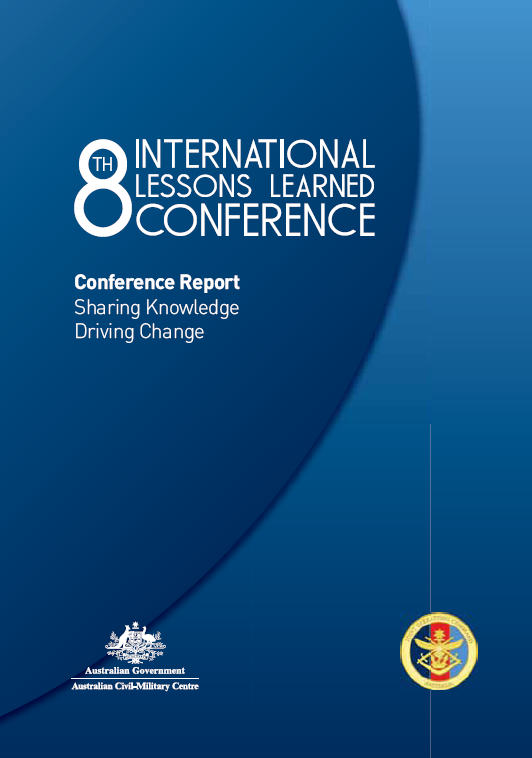Tag: Civil-Military Balance
Featured article: Team of Rivals: Building Civil-Military Synergy in the Interagency by Jeffrey S. Han In the summer of 2009, in the aftermath of the defeat of the Liberation Tigers of Tamil Eelam, I deployed as a newly-minted, active duty, Army civil affairs officer to Sri Lanka. The challenges at the time—widespread destruction of infrastructure, landmines embedded […]
... Read MoreFeatured article: Civil-Military Balance in Complex Operations by Kurt E. Müller Interventions in the affairs of a one state by another may be benign, belligerent, political or military. In addition, these interventions may supplement host-nation authority in delivering assistance. Regardless of character and purpose, there is a long-standing preference for employing civilian agencies rather than military forces to […]
... Read MoreRetired Ambassador Deborah McCarthy, the 2018 DACOR Visiting Professor of Diplomacy for the U.S. Army Command and General Staff College (CGSC), is the host of a podcast series that promotes interagency cooperation. The podcast series titled “The General and the Ambassador: A Conversation” is produced by the American Academy of Diplomacy. Ambassador McCarthy’s podcasts brings together outstanding […]
... Read MoreAn interagency review of U.S. government stabilization efforts is expected as early as this month. The Stabilization Assistance Review (SAR) examines how the State Department, U.S. Agency for International Development (USAID), and Department of Defense (DoD) coordinate their diplomacy, aid, and military operations, primarily in Syria and Iraq. A State Department official spoke of the […]
... Read MoreOn June 9, RAND Corporation released two reports examining the deployment of Department of Defense (DoD) civilians. The full case study is included in Expeditionary Civilians: Creating a Viable Practice of Department of Defense Civilian Deployment, and while a shorter report, Expeditionary Civilians: Creating a Viable Practice of Civilian Deployment Within the U.S. Interagency Community and Among Foreign […]
... Read MoreEarlier this year the U.S. Agency for International Development (USAID) Office of U.S. Foreign Disaster Assistance (OFDA) released the Policy for Humanitarian Action. OFDA leads the multi-agency response to disasters overseas by coordinating efforts, partnering with a range of humanitarian actors, and coordinating within the international humanitarian architecture, among other activities, and the policy outlines […]
... Read MoreLast month, leaders from the Departments of Defense (DoD) and Homeland Security (DHS) spoke at CyberCon 2015, a cybersecurity forum for dialogue on strategy and innovation to secure federal and defense networks. The forum included speakers and panelists representing various U.S. government agencies, and focused on cybersecurity and defense. Keynote speakers included DHS Secretary Jeh […]
... Read MoreEarlier this month, the U.S. Agency for International Development released their updated Civilian-Military Cooperation Policy. The updated policy builds on the 2008 policy, which established civilian-military cooperation as fundamental to a whole-of-government approach to contemporary national security challenges…
... Read MoreEarlier this year, the Australian Civil-Military Centre released the follow up report from the 8th International Lessons Learned Conference. The goal of the conference was to promote best practice in international lessons learned by bringing together civil, military, and police professionals…
... Read MoreThe Center for Strategic & International Studies has released a study analyzing the causes of instability in the Middle East and North Africa. The study examined the causes of terrorism, insurgency, and other forms of violence, and calls for fully integrated interagency efforts to address the violence…
... Read More"*" indicates required fields
